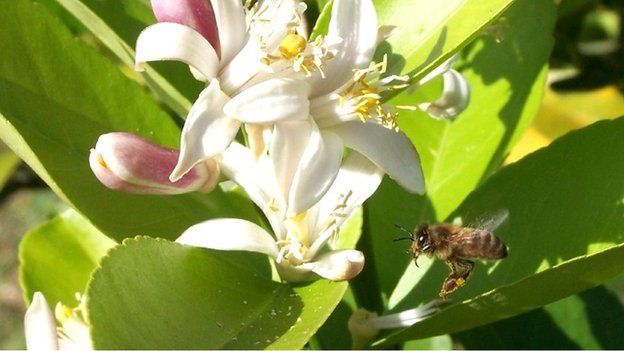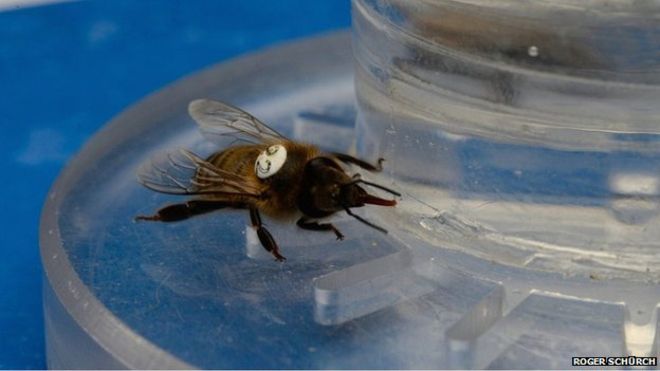
Flowers caffeinated 'addictive’ honeybees for pollination, says research
British researchers have found that some plants are able to attract bees more often to collect nectar by making them “addicted” in caffeine.
The scientists, from the University of Sussex, found that bees find the effect irresistible and end up choosing caffeinated nectar over nectar from other plants.
Many plants produce caffeine naturally with the primary purpose of chasing away insects that could devour them, like caterpillars. But, the British experience, published in the specialized magazine Current Biology, showed that bees are “enticed” by the nectar with this substance.
Margaret Couvillon, who led the research, said that the most traditional image we have of the pollination process is that of a “warm relationship, of mutual benefit”, in which the pollinator receives a reward from the plant. But the experience at the University of Sussex showed that it’s not quite.
“We are showing that the plant can exercise a kind of domination over the bee, through an action that is similar to drugging (the insect)”, said.
Francis Ratnieks, one of the team members at the University of Sussex, told the BBC that other research had already shown that caffeine from the nectar of some plants improved the bees' memory to locate a flower.
To discover how far the effects of the perception of this caffeinated nectar went, the team placed two artificial flowers for bees to feed on: one containing sweet nectar without caffeine and the other with a concentration of the compound similar to that found in many plants.
And they also stuck a tiny sign with a number on the back of the bees to be able to track and record the behavior of each.
Quick return
Bees returned to caffeine nectar more quickly, making more trips to collect compost. But the most striking finding was that the substance made bees “danced” a lot more.
After visiting the caffeine nectar, bees were more likely to do the dance – movements they usually make to communicate the location of a source of nectar to other bees.
“The vast majority of bees do not dance – they do this just to communicate a particularly good place (to find food)”, said.
Scientists concluded that caffeine had an effect on insects “similar to a drugged person”, leading them to behave as if the nectar source were of higher quality and richer in sugar.
“And we assume it’s cheaper ‘cheap’ for the plant to produce a smaller amount of caffeine than a larger amount of sugar”, he added.
Margaret Couvillondisse told the BBC that the effects after exposure to caffeine were also surprising.
“The bees that collected (the nectar with) caffeine continued to visit the feeder (for many days) after it has emptied”, the researcher told the BBC.
“So the effects of this three-hour experiment (with caffeine) it went on for many days.”
Source: http://www.bbc.com/portuguese/noticias/2015/10/151019_abelhas_cafeina_fn



Sorry, the comment form is closed at this time.